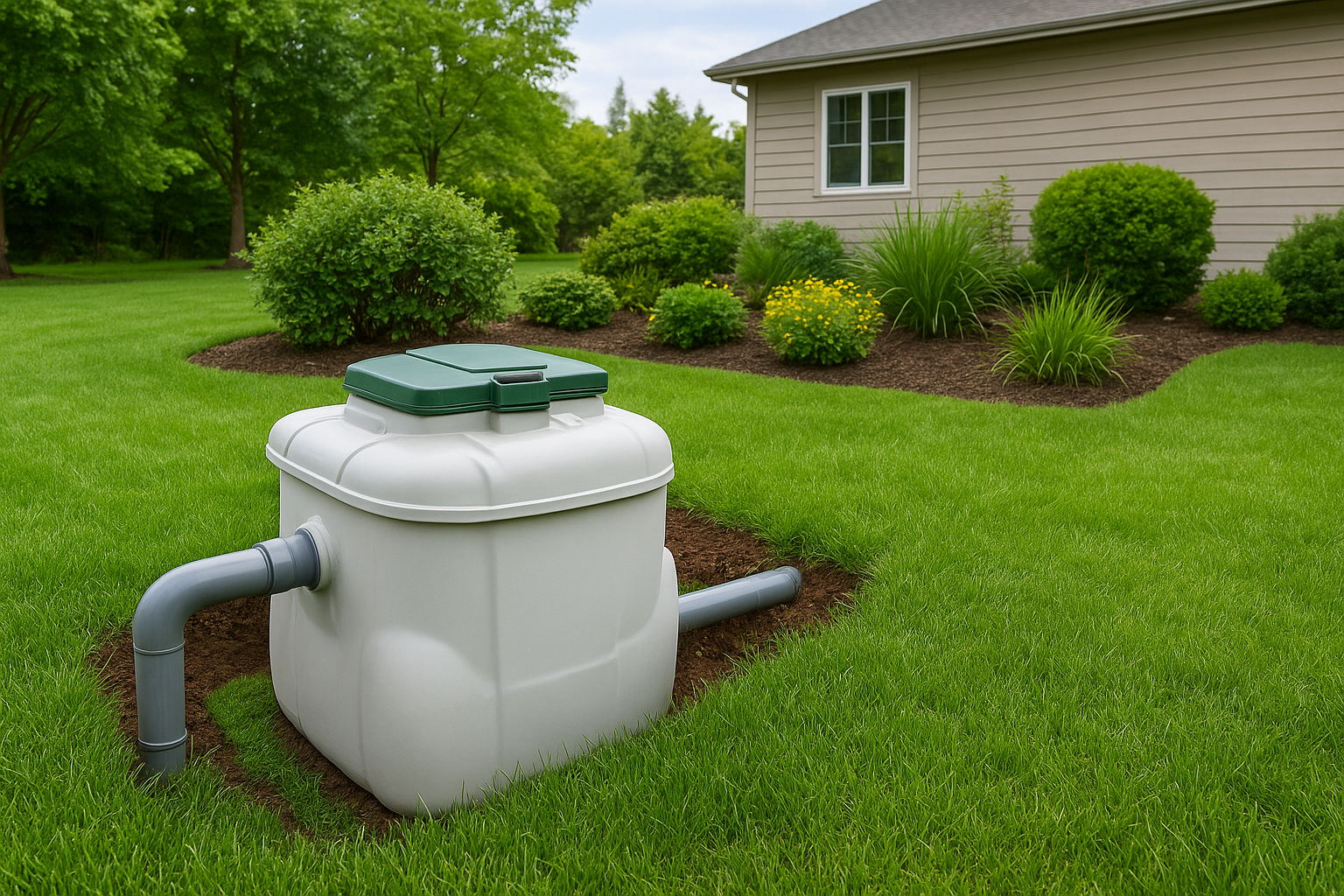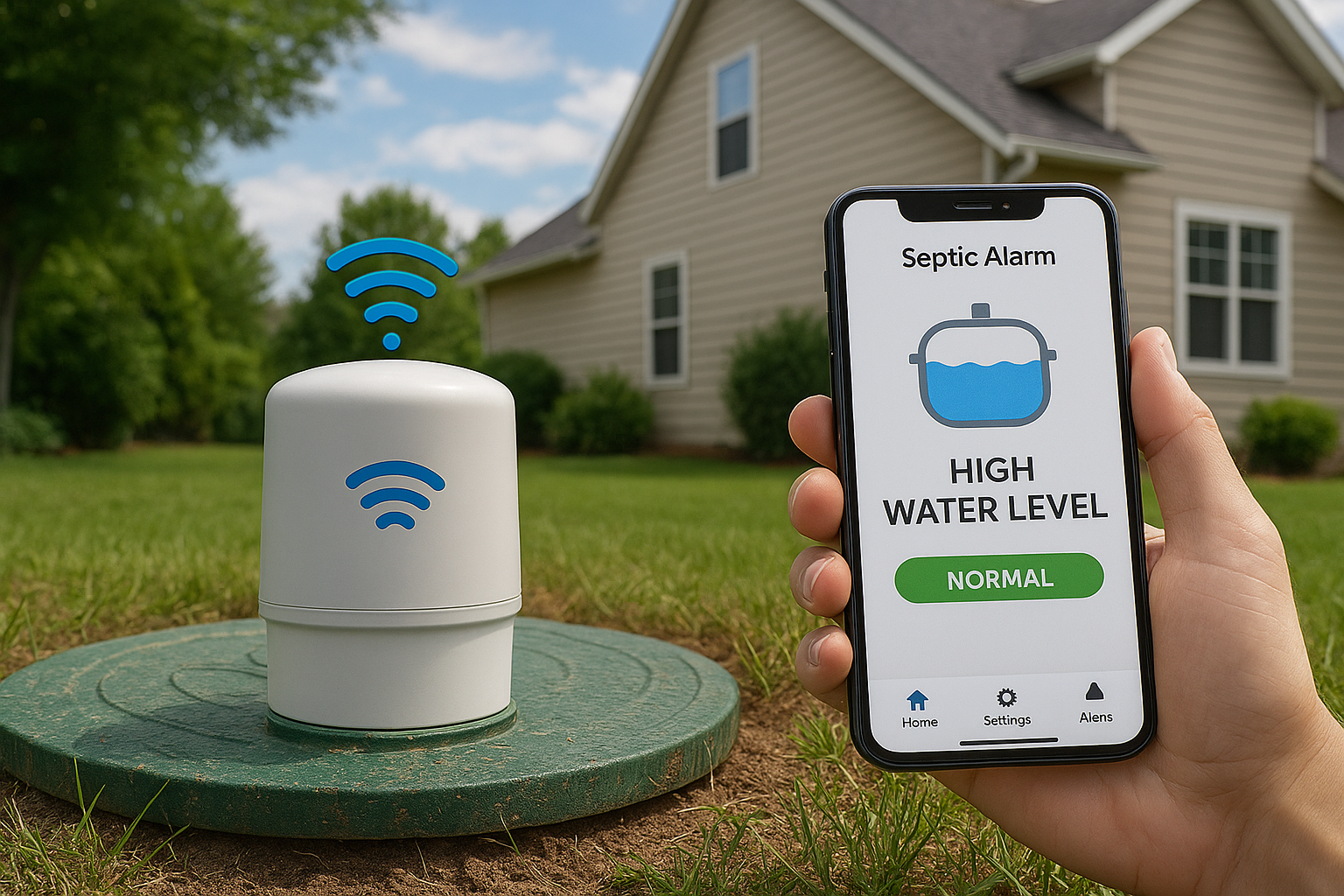Ever wondered if your property could support a septic system without the usual headaches? You’re not alone—many homeowners struggle with traditional setups that simply don’t work for their lot. Shallow soil, rocky terrain, small yard sizes, or a high water table can all make it nearly impossible for a conventional system to operate effectively. The “one-size-fits-all” approach often falls short, leaving people frustrated and uncertain about their options.
That’s where alternative septic systems come into play. Unlike standard setups, these systems are specifically engineered to address unusual land conditions and environmental concerns. Whether it’s a mound septic system, a drip distribution system, or a constructed wetland septic solution, modern technology makes it possible to adapt wastewater treatment to almost any site.
This matters because choosing the right system isn’t just about meeting legal requirements—it’s about protecting your home, saving money on repairs, and ensuring your land stays safe and usable for decades. The upfront costs of an alternative septic system installation may feel high, but the long-term stability, performance, and compliance benefits far outweigh the risks of failure.
By the end of this guide, you’ll understand what best alternative septic systems exist, what benefits they bring, and how you can make confident, informed decisions. These systems aren’t backups—they’re smarter, greener, and often more reliable solutions for modern homeowners.
Understanding Alternative Septic Systems: From Roots to Modern Solutions
Septic systems have been used in rural and suburban areas for over 100 years. Originally, they were simple: household wastewater moved by gravity into a tank, where solids settled, and liquids filtered into the soil. That worked well when land was plentiful and soil conditions were ideal. But as populations grew, land became tighter, and regulations tougher, conventional systems showed their limits. Flood-prone properties, clay-heavy soils, or tiny urban lots needed different solutions.
This is where alternative septic systems shine. Instead of one fixed design, they adapt wastewater treatment to the specific site. For instance:
- Mound septic system – uses raised sand to filter wastewater safely.
- Aerobic treatment unit – oxygen speeds up waste breakdown.
- Sand filter septic and peat septic filter – rely on natural filtering media.
- Drip distribution system – spreads treated water gradually into soil.
- Evapotranspiration system – uses sun and plants to release effluent.
- Constructed wetland septic – mimics nature for cleaner water.
- Recirculating gravel filter – repeatedly cleans wastewater through gravel.
Modern setups also include pressurized dosing septic, chamber septic system, textile filter septic, and the advanced treatment unit, offering flexibility for nearly any challenge. These engineered septic solutions combine innovation with environmental responsibility.
Understanding these systems helps you see how innovative septic technologies and advanced septic technologies redefine wastewater management for today’s needs. At the same time, don’t forget that even alternative systems require ongoing septic tank cleaning and pumping to remain effective over time.
Exploring the Core Options in Alternative Septic Systems
When exploring alternative onsite wastewater treatment, it’s vital to know the primary system types and what sets them apart. Each addresses different land, soil, and space challenges, making it easier to find the right fit for your home.
Core Types:
- Aerobic Treatment Units (ATUs) – Introduce oxygen, breaking down solids quickly. While aerobic septic system cost varies, they provide cleaner effluent and meet strict regulations.
- Mound Systems – Built on raised sand mounds, great for shallow soils or high water tables.
- Drip Distribution Systems – Use tubing networks to evenly release effluent, protecting against soil overload.
- Constructed Wetlands – Rely on plants and microbes for an eco friendly septic system that blends with landscaping.
- Recirculating Sand Filters – Pass effluent through sand layers multiple times for advanced cleaning.
- Chamber Septic System – Lightweight chambers replace gravel trenches, saving space.
- Peat Septic Filter – Filters wastewater naturally through organic material.
- Evapotranspiration System – Ideal for dry climates where evaporation dominates.
- Textile Filter Septic – Compact, high-performance filters with minimal footprint.
- Advanced Treatment Unit – Delivers maximum efficiency for the toughest sites.
By comparing these designs, you’ll see how alternative septic designs offer flexible, practical, and long-lasting answers. From residential alternative septic setups to rural septic system options, technology ensures no homeowner is left without a solution. And depending on your installation, you may also need add-ons like septic risers and lid installation to improve access and long-term maintenance.
Why Alternative Septic Systems Are a Smart Choice for Your Property
Switching to an alternative septic system is about more than compliance—it’s about making a smart choice for your home, your land, and the environment. Where traditional systems fail, alternatives provide safety, efficiency, and peace of mind.
Benefits:
- Adaptability – From septic system for small lots to steep or rocky properties, solutions like drip or mound systems adapt to unique land conditions.
- Improved Treatment – Alternative waste treatment setups such as aerobic units and constructed wetlands deliver cleaner effluent that safeguards groundwater.
- Space Efficiency – Systems like chamber or drip require less land, making them perfect for suburban neighborhoods.
- Eco-Friendly – Options like green wastewater systems and sustainable wastewater treatment minimize energy use and pollution.
- Cost Savings – Though septic system alternatives cost more upfront, alternative septic financing options and reduced repair bills provide long-term value.
For off-grid or rural living, off grid septic solutions give independence while remaining compliant with alternative septic system regulations. These choices often boost property value and provide confidence that wastewater won’t cause future headaches. If you’re considering selling, arranging a real estate septic system inspection with a full report ensures buyers have peace of mind and keeps transactions smooth.
Recognizing the Challenges of Alternative Septic Systems
Even the most advanced innovative septic technologies have drawbacks, and it’s important to weigh them honestly. By knowing the challenges, you can plan better and avoid costly mistakes.
Common Challenges:
- High Upfront Cost – Specialized materials mean higher septic system alternatives cost.
- Maintenance Needs – Many require regular alternative septic system maintenance and inspections.
- Permit Complexity – Navigating alternative septic approvals takes time and research.
- Contractor Access – Finding skilled alternative septic contractors near me may be harder in rural areas.
- Potential Neglect – Without care, even the best alternative septic systems can fail, leading to costly septic replacement options.
These issues aren’t deal-breakers. Septic alternative grants can ease financial strain, and alternative septic solutions reviews help homeowners evaluate real-world performance. Regular servicing, such as lift station pumping or outlet baffle replacement, also prevents small problems from becoming big ones.
Putting Alternative Septic Systems into Action
Once you’ve chosen a system, the next step is planning and implementation. This is where ideas turn into action, transforming your wastewater strategy into a safe, long-term solution.
Step-by-Step Process:
- Assess lot conditions (soil, slope, space, water table).
- Research alternative septic system regulations to avoid delays.
- Consult professionals for tailored recommendations.
- Compare systems and evaluate septic replacement options if upgrading.
- Consider alternative septic financing and budget for costs.
- Plan routine alternative septic system maintenance.
- Finalize installation with licensed contractors.
Helpful Tools:
- County health department websites for alternative septic approvals.
- Online design calculators for alternative septic designs.
- Directories listing certified installers and reviews of alternative septic contractors near me.
When implemented correctly, these systems safeguard both your home and your environment. Choosing the right fit among alternative sewage disposal methods, residential alternative septic options, or off grid septic solutions ensures reliable performance.
The Future of Alternative Septic Systems
Wastewater management is rapidly evolving. As regulations tighten and sustainability grows more important, engineered septic solutions will continue to lead innovation.
Key Trends:
- Smarter Monitoring – Sensors provide real-time alerts.
- Eco-Centric Systems – Wider use of constructed wetland septic and green wastewater systems.
- Scalable Designs – Modular alternative waste treatment setups that expand as needs grow.
- Government Incentives – More septic alternative grants and tax breaks for eco-friendly adoption.
- Integration – Pairing advanced septic technologies with smart home systems.
The result is greater efficiency, cleaner water, and stronger environmental protection. Homeowners benefit from reliability, while contractors expand expertise in alternative onsite wastewater solutions. Municipalities adapt through updated alternative septic system regulations, encouraging broader adoption of eco friendly septic system designs.
The next decade promises systems that are cheaper, easier to maintain, and far more sustainable, reshaping wastewater management for generations to come.
Wrapping It Up: Choosing the Right Path Forward
We’ve covered how alternative septic systems evolved, what types exist, and the benefits and challenges of adopting them. From the mound septic system to the textile filter septic, every design provides tailored answers to property limitations.
Key Takeaways:
- Best alternative septic systems offer flexibility for unique lots.
- Benefits include adaptability, cost-effectiveness, and sustainability.
- Challenges like high septic system alternatives cost can be managed with alternative septic financing and septic alternative grants.
- Informed planning ensures smoother alternative septic system installation and reliable operation.
When selecting between alternative sewage disposal systems or residential alternative septic setups, always consult professionals and check alternative septic solutions reviews. This ensures peace of mind and compliance.
By investing wisely, you protect your property, reduce environmental risks, and set your household up for long-term success.






